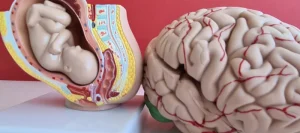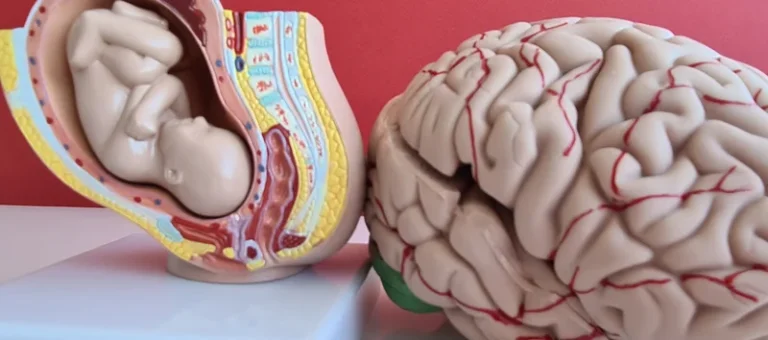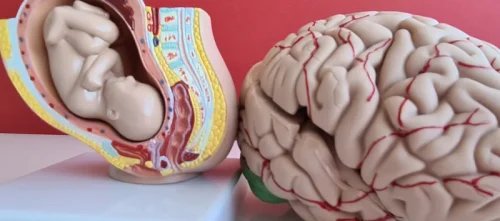
If someone close to you is displaying signs of alcohol dependence, it can be difficult to know what to do. You might feel worried about them, frustrated that they don’t seem to want help, frightened for them or even by them. All of these feelings are normal and there is help out there both for people who are dependent on alcohol and those caring for them.

Recognizing the Signs and Symptoms of Alcohol Misuse
- Helping them access resources, such as counseling, support groups, or treatment programs, is an important step toward recovery.
- Getting professional help for managing anxiety and depression can also substantially improve your quality of life.
- Over time, this dual impact significantly impairs emotional well-being and leads to long-term mental health challenges.
- Alcohol doesn’t just affect your mood and cognition while you’re intoxicated; it can also have long-lasting effects on the brain—even in relatively moderate amounts.
Genetics plays an important role in alcohol dependence, accounting for between 50% and 60% of the vulnerability to Alcohol Use Disorder (AUD), according to the National Institute of Alcohol Abuse and Alcoholism (NIAAA). This genetic influence arises from variations in numerous genes that affect biological processes and mental traits, such as alcohol metabolism, stress response, neurobiology, and behavioral tendencies like impulsivity. More recent studies have also indicated certain genetic, social, psychological, or environmental factors may also impact the body’s dependency on alcohol.
Explore Long-term Recovery Planning at The Springboard Center

At The Springboard Center, our medical team carefully monitors benzodiazepine use to ensure patient safety. This phenomenon, known as “kindling,” means that each subsequent withdrawal episode can be more severe than the last. „Alcohol interferes with the brain’s communication pathways, and can affect the way the brain looks and works,“ says the NIAAA. „These disruptions can change mood and behavior, and make it harder to think clearly and move with coordination,“ they say. Alcohol doesn’t just affect your mood and cognition while you’re intoxicated; it can also have long-lasting effects on the brain—even in relatively moderate amounts. If you’re worried about your drinking, get in touch with your GP surgery who will be able to help.
- Genetics plays a key role, with some individuals being genetically predisposed to alcohol use disorder.
- Call your doctor whenever you or someone you love has an alcohol-related problem.
- Many people recover from alcohol dependence and alcohol use disorder with proper medical supervision.
- But these may be easier for concerned family members and friends to ask, since they may hesitate to ask direct questions about quantity.
- Mayo Clinic in “Effects of Alcohol on Health and Liver.” estimates that up to 20% of heavy drinkers develop cirrhosis, and about one-third experience alcoholic hepatitis.
Repeated Alcohol Withdrawals
The WHO calls alcoholism „a term of long-standing use and variable meaning“, and use of the term was disfavored by a 1979 WHO expert committee. Whether you are looking for information for yourself, or on behalf of https://ecosoberhouse.com/ someone else, there’s more information, including useful links and phone numbers, in the dedicated alcohol support services section of our website. You could perhaps request an out of hours emergency telephone number – there are services that can help you support the person receiving treatment, as well as other services to support families. If you think you may be drinking too much, or that your drinking is beginning to have a damaging effect on your life, we have a quick online test that can help you understand if there is cause for concern. The UK Chief Medical Officers’ low risk drinking guidelines advise it is safest not to drink more than 14 units a week on a regular basis. Following detox, you may be encouraged to transition into either an inpatient or outpatient rehabilitation program for longer-term recovery work.

Get Help For Physical Alcohol Dependence

„The defining characteristic of alcohol addiction is a vicious cycle where one drink fuels the need for the next, leading to impaired control,“ says Volpicelli. „Unlike social drinkers who can stop after one or two drinks, individuals with alcohol use disorder (AUD) experience an overwhelming craving for more alcohol once they start drinking.“ Although it isn’t a term that is used anymore as part of medical care, some people who are recovering from dependence still use the term ‘alcoholic’ to describe themselves.
- Financially, alcohol dependence causes job instability and results in high expenses for treatment and related care, adding strain to household budgets.
- Indeed, clinical investigations similarly have reported that a history of multiple detoxifications can impact responsiveness to and efficacy of various pharmacotherapeutics used to manage alcohol dependence (Malcolm et al. 2000, 2002, 2007).
Early-Stage Alcoholism
The individual can Drug rehabilitation stay in this stage for many years but eventually start showing more disordered behaviors. In operant procedures, animals must first perform certain response (e.g., press a lever) before they receive a stimulus (e.g., a small amount of alcohol). By modifying the required response (e.g., increasing the number of lever presses required before the alcohol is delivered) researchers can determine the motivational value of the stimulus for the animal. In operant procedures, animals must first perform a certain response (e.g., press a lever) before they receive a stimulus (e.g., a small amount of alcohol). If you or anyone you know is undergoing a severe health crisis, call a doctor or 911 immediately.
Whether you’re drinking „too much“ can be measured in fluid ounces, but it can also be interpreted more broadly by looking at when and why you drink. If you often use alcohol to cope with unfavorable emotions, that probably means you’re drinking too much. Though many Americans now appear to be grappling with their own relationships to alcohol in light of this news, experts say that it can often be difficult to gauge the safety of your own drinking habits. Former U.S. Surgeon General Vivek Murthy, MD, recently made waves when he issued a damning advisory naming alcohol a leading preventable cause of cancer. His warning called on Congress to update labels on alcoholic products to reflect the dangers of consuming any amount of alcohol while simultaneously calling on the public to cut back on their personal intake.
myths about using Suboxone to treat opioid addiction

This stage of alcoholism is symptoms of alcohol dependence difficult to notice, even for the person misusing alcohol. The limits are different for women and men because of known differences in how alcohol is absorbed, distributed and eliminated from the body. Thus, the risk goes up for men who drink more than four standard drinks in a day (or more than 14 in a week); for women, there is a lower limit of three drinks in a day (and seven drinks in a week).
